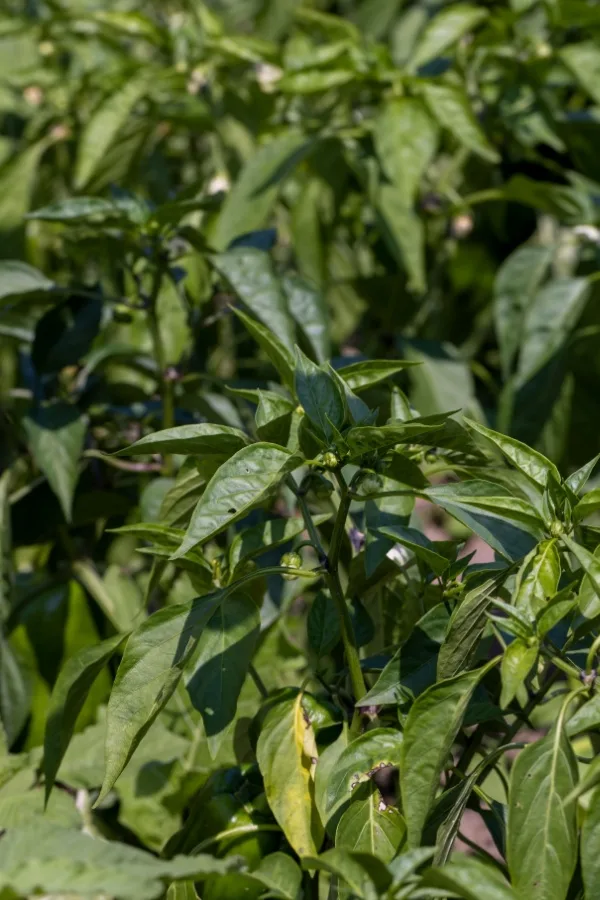Check Out the Best Fertilizers for Peppers and Enhance Your Garden's Return
Wiki Article
Organic Vs. Synthetic Fertilizers: Which Is Best for Nurturing Healthy And Balanced Pepper Plants?
In the world of supporting healthy pepper plants, the selection between artificial and organic plant foods stands as a pivotal choice with far-reaching implications. While both alternatives aim to offer essential nutrients to support plant growth, the nuances of their effect on the soil, plant health, and the atmosphere trigger a discussion that mirrors throughout the horticulture community. Recognizing the distinctive advantages and potential challenges of each plant food kind is crucial for pepper farmers seeking to enhance their returns while maintaining a sustainable and eco-conscious method.Advantages of Organic Fertilizers
Organic fertilizers use an environmentally-friendly and sustainable strategy to nourishing pepper plants, providing important nutrients without the usage of synthetic chemicals. These all-natural fertilizers are originated from natural sources such as compost, manure, bone meal, and seaweed, advertising soil health and wellness and biodiversity. Unlike artificial fertilizers, natural alternatives release nutrients gradually, guaranteeing a consistent and well balanced supply for pepper plants to grow.One substantial advantage of organic plant foods is their capacity to improve dirt framework and water retention. By improving soil health and wellness, organic plant foods advertise helpful microbial task, which helps in nutrient uptake by pepper plants. Additionally, natural fertilizers decrease the danger of chemical run-off, securing water resources from air pollution and protecting the atmosphere.
In addition, natural plant foods add to long-term soil fertility by promoting the growth of beneficial dirt organisms. These organisms help damage down raw material, releasing nutrients in a form that is quickly accessible to pepper plants. best fertilizers for peppers. By promoting a healthy and balanced dirt community, organic plant foods sustain lasting pepper farming practices that profit both plants and the atmosphere
Drawbacks of Artificial Fertilizers
Artificial fertilizers, in contrast to their natural equivalents, pose various disadvantages when made use of to nourish pepper plants, affecting both plant health and ecological sustainability. One major disadvantage of synthetic fertilizers is their propensity to seep nutrients from the dirt rapidly.In addition, the overuse of synthetic fertilizers can add to water pollution. Excess fertilizers not soaked up by plants can get rid of right into water bodies, causing eutrophication, where algae blossoms deplete oxygen levels in the water, damaging water life. Synthetic plant foods are usually acquired from non-renewable resources, such as fossil fuels, contributing to carbon exhausts and environmental destruction during their production.
Nutrient Absorption Contrast
When contrasting artificial and natural fertilizers in terms of nutrient absorption, natural fertilizers have the advantage of offering a much more well balanced and slow-release resource of nutrients. Organic fertilizers include a variety of macro and trace elements that are not just helpful for the plants but likewise promote healthy soil microbial activity, which aids in nutrient uptake.Additionally, organic fertilizers enhance dirt framework and water retention ability, allowing pepper plants to gain access to nutrients extra successfully. This enhanced dirt high quality promotes origin advancement, allowing better nutrient absorption. Synthetic fertilizers, although originally increasing plant growth as a result of their high nutrient concentrations, may hinder lasting nutrient absorption by degrading dirt health in time.
Ecological Influence Factors To Consider

On the other hand, synthetic plant foods, although usually even more concentrated and right away available to plants, have a peek at these guys can have harmful results on the setting if not used appropriately (best fertilizers for peppers). Their manufacturing needs high power inputs, bring about greenhouse gas emissions and contributing to climate adjustment. The runoff of excess artificial plant foods can pollute water sources, leading to eutrophication and damaging aquatic communities.
Finest Plant Food Practices for Peppers
When feeding pepper plants, maximizing nutrient uptake and minimizing ecological impact are vital factors to consider. To achieve this, it is vital to comply with ideal fertilizer methods customized to the certain demands of pepper plants. One vital technique is to perform a soil examination prior to applying any type of fertilizers. This examination can establish the pH level of the dirt and recognize any nutrient deficiencies, guiding you in selecting one of the most ideal fertilizer solution.Another important technique is to feed pepper plants at the correct time. Typically, peppers gain from getting plant food at planting and then once more when they begin to blossom. Over-fertilizing can result in vitamins and mineral imbalances and damage the plants, so it is crucial to comply with advised application rates.
Additionally, picking a well balanced plant food with an NPK proportion that suits pepper plants' demands is basic. Organic plant foods, such as garden compost or manure, can be superb options as they launch nutrients gradually and improve soil framework in time. Synthetic plant foods can give a fast nutrient boost when required. Eventually, incorporating natural and artificial fertilizers sensibly can help support healthy and balanced pepper plants while lessening environmental impact.
Conclusion

Organic fertilizers use an environmentally-friendly and lasting technique to beneficial pepper plants, providing essential nutrients without the usage of artificial chemicals. Unlike artificial plant foods, organic choices release nutrients gradually, guaranteeing a stable next and balanced supply for pepper plants to grow.
Synthetic fertilizers, in contrast to official site their organic counterparts, position various downsides when made use of to nourish pepper plants, affecting both plant health and environmental sustainability. When contrasting synthetic and natural fertilizers in terms of nutrient absorption, natural fertilizers have the benefit of giving a much more well balanced and slow-release resource of nutrients.Furthermore, natural fertilizers improve soil framework and water retention capability, allowing pepper plants to gain access to nutrients extra efficiently.
Report this wiki page